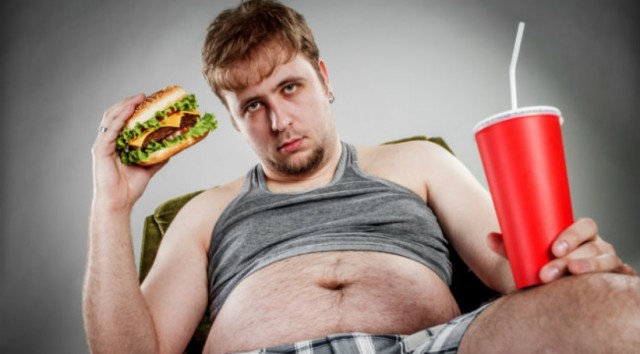
Advertisement
Once you get fat, you never go back. That is the nugget of wisdom that can be taken from a recent study published in the American Journal of Public Health, which found that the likelihood of an obese person attaining an average body weight is 1 in 210 for men and 1 in 123 for women, jumping to 1 in 1,290 for men and 1 in 677 for women with severe obesity.
The study was funded by the the National Institute for Health Research (NIHR), which monitored the weight of 278,982 volunteers, 129,194 being male and 149,788 being female, by referencing electronic health records from 2004 to 2014. The team investigated the likelihood of obese people attaining a normal weight or a five percent reduction in body weight. Patients who underwent bariatric surgery were not involved in the study.
The lost cause of weight loss
The annual likelihood of obese patients attaining a five percent weight reduction was 1 in 12 for men and 1 in 10 for women. Among those who did achieve a five percent weight reduction, approximately 53 percent of them put this weight back on within two years and approximately 78 percent put this weight back on within five years.
On the whole, a mere 1,283 men and 2,245 women with a BMI of 30-35 were able to achieve a normal body weight. In other words, the annual probability of achieving a normal weight was 1 in 210 for men and 1 in 124 for women. For participants who had a BMI greater than 40, the odds increased to 1 in 1,290 for men and 1 in 677 for women with severe obesity.
Fluctuations in weight loss and weight gain were seen in more than one-third of participants. The results of the study suggest that current obesity treatments are not having their intended effect for most obese patients on a mass scale.

The need for better treatment options
According Dr. Alison Fildes, a psychologist at King’s College London who was involved in the study, “’Losing 5 to 10 per cent of your body weight has been shown to have meaningful health benefits and is often recommended as a weight loss target. These findings highlight how difficult it is for people with obesity to achieve and maintain even small amounts of weight loss.’
“‘The main treatment options offered to obese patients in the UK are weight management programmes accessed via their GP. This evidence suggests the current system is not working for the vast majority of obese patients.’
“‘Once an adult becomes obese, it is very unlikely that they will return to a healthy body weight. New approaches are urgently needed to deal with this issue. Obesity treatments should focus on preventing overweight and obese patients gaining further weight, while also helping those that do lose weight to keep it off. More importantly, priority needs to be placed on preventing weight gain in the first place.’”
Adding to these remarks, Martin Gulliford, Professor of Public Health in the Division of Health and Social Care Research at King’s College London and lead author of the study, noted: “strategies to tackle obesity, which mainly focus on cutting calories and boosting physical activity, are failing to help the majority of obese patients to shed weight and maintain that weight loss. The greatest opportunity for stemming the current obesity epidemic is in wider-reaching public health policies to prevent obesity in the population.”
For more information on the right foods to eat, visit FoodForensics.com.
Sources include:
Submit a correction >>
This article may contain statements that reflect the opinion of the author
Advertisement
Advertisements















